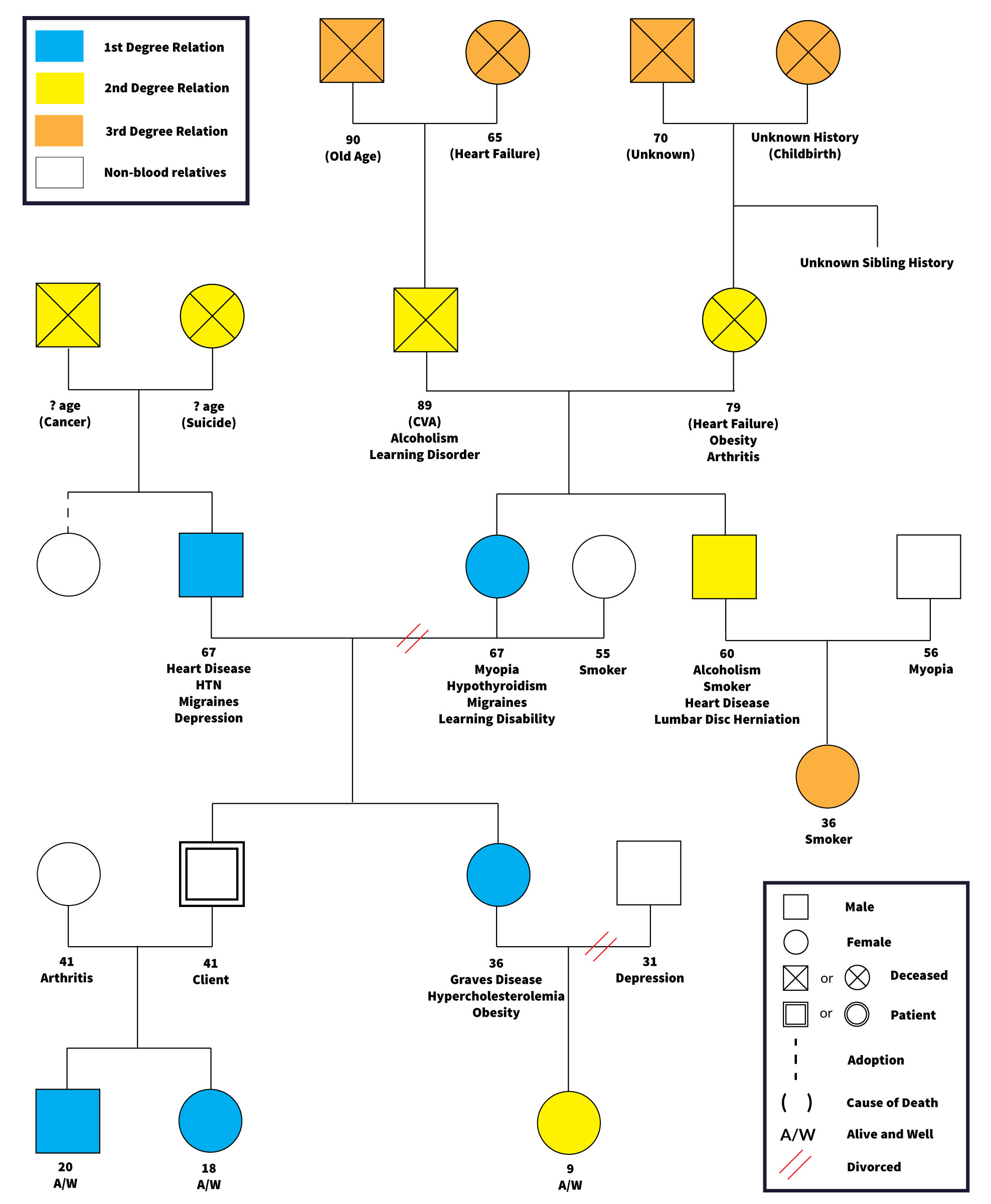Family Health
Assessing the current and past health of a client’s family is important because diseases sometimes have a genetic component. These data provide you with a risk profile for inherited conditions. While it is important to understand the risk and likelihood of illness based on family health, these factors do not determine health and wellness. Sometimes health professionals construct genograms to document this information as illustrated in Figure 2.9. There are various ways to construct genograms, this is one example.
You want to ask questions that elicit information about the health status, age, and if applicable, cause of death and age at time of death of blood relatives (parents, grandparents, siblings, children, nieces, nephews). Questions to ask include:
- Tell me about the health of your blood relatives.
- Do they have any chronic or acute diseases (e.g., cardiac, cancer, mental health issues)?
- Have any of your blood relatives died?
- If so, do you know the cause of death?
- And at what age did they die?
You also want to assess the health status of non-blood relatives and individuals that clients have had close encounters with or live with; this can be an important part of the assessment particularly in terms of communicable diseases (i.e., diseases spread through air, food, physical contact, contaminated surfaces, and insect and animal bites). Questions to ask include:
- Tell me about the health status of those you live with.
- Has anyone been sick recently?
- If so, do you know the cause?
- What symptoms have they had?
- Have you been around anyone else who was sick recently (e.g., at work, at school, in a location that involved a close encounter such as a plane or an office)?

Points of Consideration
Many people seek genetic information to better understand their family health. This information may be available from genetic counsellors, who are health professionals who offer informational and supportive resources for persons seeking to better understand their genetic health history and risk for genetic disorders and inherited conditions. Also popular today are the DNA tests available commercially to determine family ancestry and health predispositions. Despite their popularity, the accuracy and privacy risks of this latter type of testing is questionable.
Test Yourself

